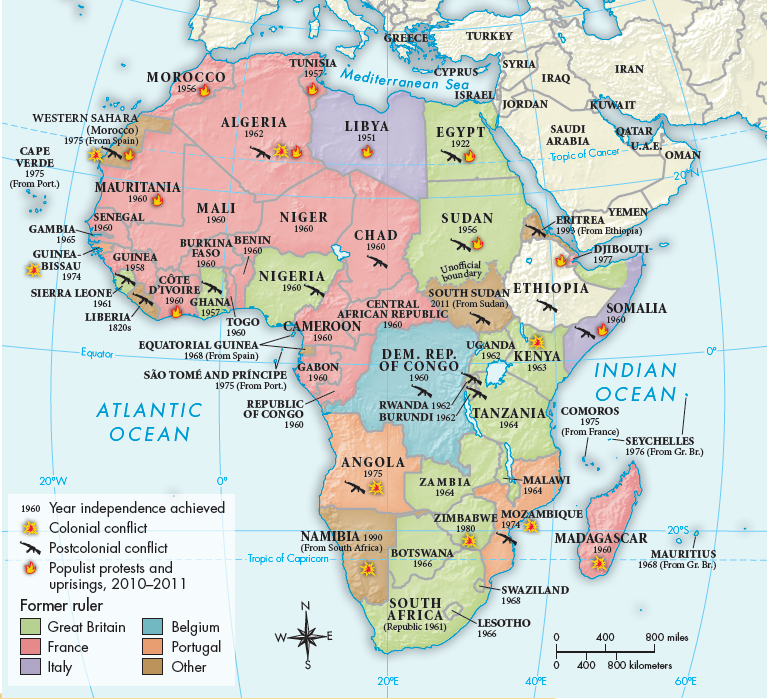A History of World Societies:
Printed Page 974
A History of World Societies Value
Edition: Printed Page 985
Decolonization in Africa
What factors influenced decolonization in Africa after World War II?
By 1964 most of Africa had gained independence (Map 31.5). Only Portugal’s colonies and white-

Africans who sought independence wanted a complete break from the colonial mold: they wanted to create nations that were free of economic exploitation and could realize their own national aims for the first time. Many new leaders saw socialism as the best way to sever colonial ties and erase exploitation within their new borders. But institutional barriers left over from the colonial era hampered liberation efforts: new nations inherited inefficient colonial bureaucracies, economic systems that privileged the export of raw materials, and colonial educational systems intended to build servants of empire. The range of actions available to new leaders was narrowed by former colonizers’ efforts to retain their economic influence and by the political and ideological divisions of the Cold War. Efforts by new leaders could easily run afoul of powerful foreign businesses, the United States, or the Soviet Union.